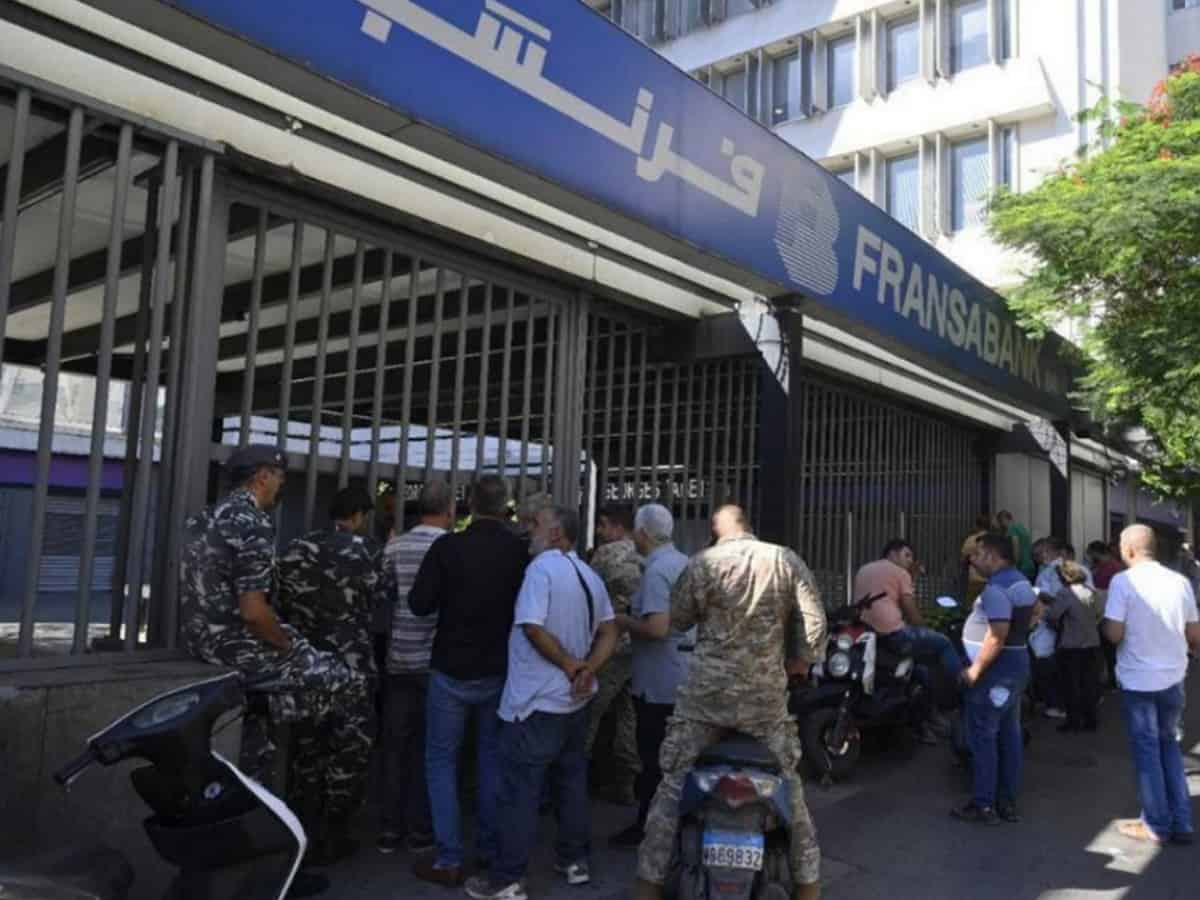
Beirut: Lebanese banks reopened on Monday, after being closed for the past week, due to escalating security concerns after a series of incidents involved people seeking to access their savings by entering the banks armed with guns.
The Association of Banks in Lebanon said in a statement on Sunday that the decision to reopen “was taken after consideration of the current difficult security conditions and the need to maintain the safety of customers and employees alike, in the absence of adequate protection by the state.”
On Monday morning, banks witnessed a crowd in front of their doors for citizens and employees of the private and public sectors, who flocked to complete their transactions and withdrawals amid protection measures, Anadolu Agency reported.
As per media reports, some banks inside the country resorted to placing concrete barriers, and imposed on depositors to take prior appointments.
Banks carried out a week-long strike, in protest of a series of armed incursions into several branches in Beirut and the regions, from depositors demanding their cash deposits in US dollars.
On Friday, September 19, the Association of Banks in Lebanon announced the closure of all banks for a period of 3 days from September 19 to September 21, following a series of raids by depositors.
On Wednesday, September 21, the association decided to continue closing its doors to customers, due to the presence of “risks and the absence of security measures”, without specifying the time period for the closure.
The bank raids reflect the frustration of depositors after three years of the collapse of the financial system in Lebanon due to corruption, waste and unsustainable financial policies for decades.
Since the fall of 2019, banks have imposed strict restrictions on deposit withdrawals, which increased little by little, until it became almost impossible for depositors to dispose of their money, especially those deposited in US dollars, with the lira losing about 95 per cent of its value against the dollar.
The World Bank ranked Lebanon’s economic crisis among the worst in the world since 1850.
